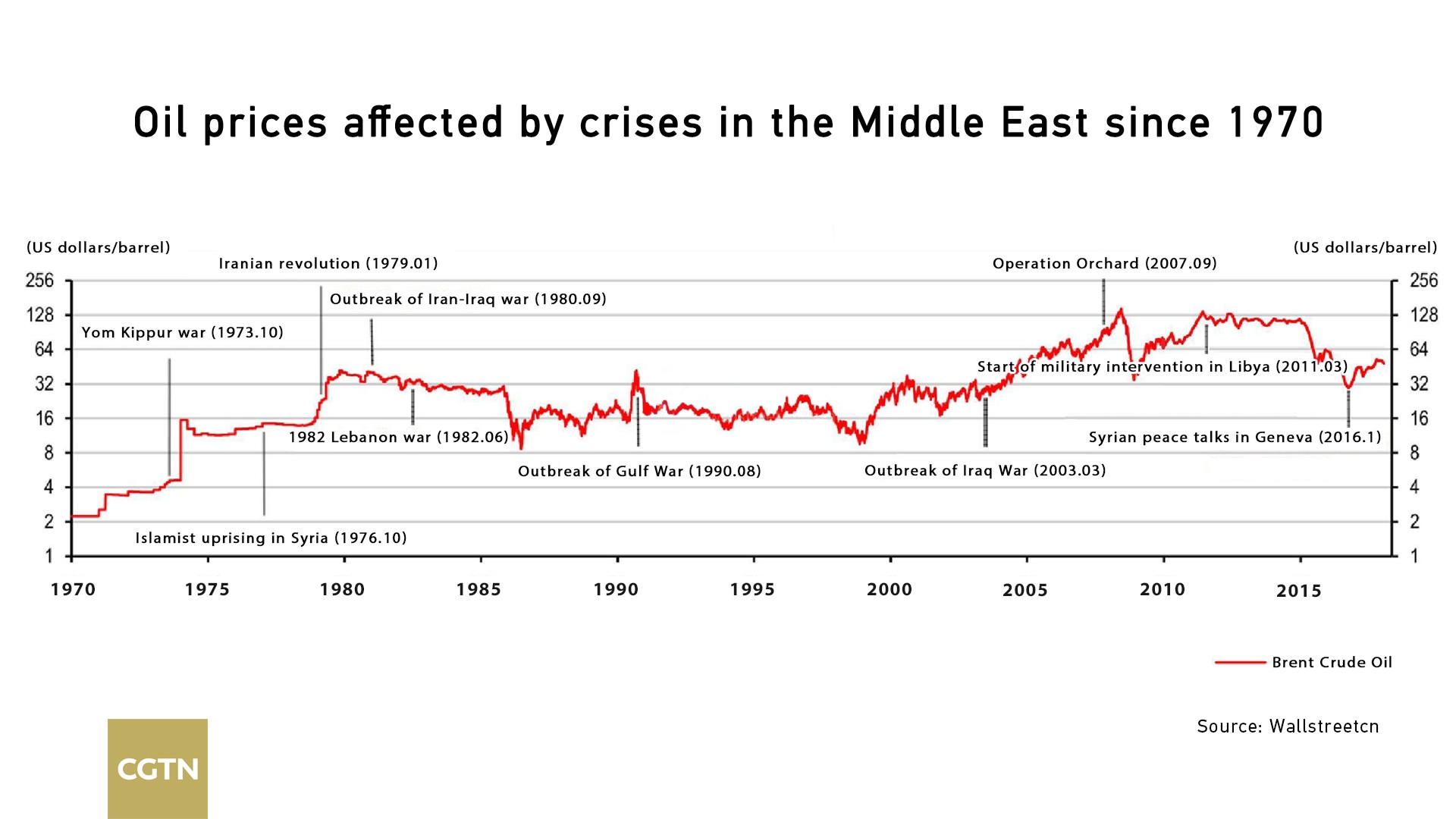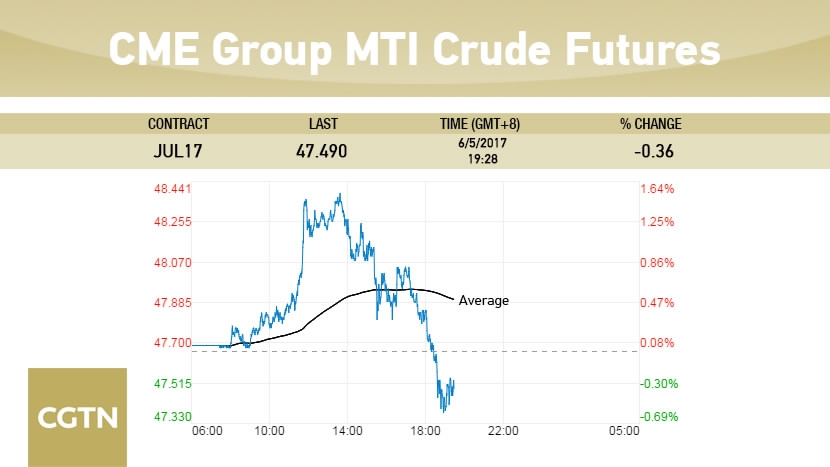Six Arab countries--Saudi Arabia, Bahrain, the United Arab Emirates (UAE), Egypt, Yemen and Libya's eastern-based government--plus the Republic of Maldives cut diplomatic relations with Qatar on Monday, accusing Doha of supporting terrorism.

Qatar, which is the world’s biggest producer of liquefied natural gas and is set to host the 2022 football World Cup, expressed surprise over the “unjustified” diplomatic withdrawal and denied the “baseless and unfounded” accusations. There were no reciprocal moves by Qatar.
Impact on OPEC cut?
As the Middle East is an important oil-producing region, the diplomatic crisis raised investors’ concerns over oil price fluctuation and oil production cut deal led by the Organization of the Petroleum Exporting Countries (OPEC).

Although oil prices soared at the news of the diplomatic rift as it often did in history when crises occurred, the prices finally fell on concerns that the crisis among some of the Arab world's major energy producers could weaken the OPEC-led deal on oil output cuts.


The Monday move is likely to push Qatar to adopt a different oil policy from Saudi Arabia, Egypt and Bahrain. But limited impact on OPEC cut deal is expected, since Qatar’s oil production has small weight in OPEC, according to eToro, the world’s leading social trading network.

Source: OPEC
However, concerns may exist once Iran and non-OPEC Russia, with daily oil production of 14 million barrels, drop the cut deal. The crisis will have impact on oil prices in medium and long run only if it breaks the unity in OPEC and causes oil production increase from the controlled level, according to Tushar Tarun Bansal, Founder-Director at Ivy Global Energy.
What is behind crisis?
The unprecedented move is well-planed, said Hong Lin, a commentator with CCTV. It derived from rivalry between Saudi Arabia and Qatar for regional dominance, according to Liu Zhongmin, a professor at the Middle East Studies Institute of Shanghai International Studies University.
Two key factors drove the diplomatic crisis, Liu suggested. Liu pointed out Qatar's support for the Muslim Brotherhood reviled by Saudi Arabia within the six-country Gulf Cooperation Council (GCC) and its reservations about Saudi Arabia's increasingly belligerent stance on Iran.
Support for the Muslim Brotherhood
The deep cause behind the crisis is that Qatar supports the Muslim Brotherhood which is deemed as a terrorist group by Saudi Arabia and Egypt, said Xu Liang, a researcher from Beijing International Studies University.
Energy-rich Qatar has reportedly sponsored the Brotherhood with 64 billion US dollars in recent years and caused political unrest in several countries, and Hong said tensions exist since 2013 when Qatar-backed Brotherhood in Egypt was overthrown by Saudi-backed incumbent Egyptian President Abdel-Fattah el-Sisi.
Reservations about Saudi stance on Iran
Last week, Qatar’s Emir Sheikh Tamim bin Hamad Al Thani aggravated Saudi Arabia by a phone call to Iranian President Hassan Rouhani with congratulations on his reelection. Qatar is the only country in the GCC that has signed cooperation agreements on defense and natural gas with Iran.
The tension heightened two weeks after Saudi Arabia, the UAE, Bahrain and Egypt blocked Qatari media outlets, including Al Jazeera, over comments where Qatar’s Emir allegedly expressed support for Iran, which Qatar said was a “shameful cybercrime.”

Qatar's Foreign Minister Sheikh Mohammed Bin Abdulrahman Bin Jassim Al-Thani gives a press conference in Doha on May 25, 2017. /VCG Photo
Two weeks ago, US President Donald Trump visited Saudi Arabia and vowed to combat terrorism and contain Iran. The US has close ties to both countries with Saudi Arabia in weapons deal worth nearly 110 billion US dollars and Qatar home to the largest US base in the Middle East, Al Udeid.
Back in 2014, Saudi Arabia, Bahrain and the UAE withdrew their ambassadors from Qatar for months in spat over alleged Qatar’s interference in their affairs, which was resolved within nine months with the core issues remaining.
The future of the GCC
Established with Saudi Arabia, the UAE, Bahrain, Oman, Kuwait and Qatar in 1981, the GCC is viewed as one of the most influential union in the Middle East. Kuwait and Oman remain ties with Qatar. It remained to be seen whether the GCC would be severely divided, Liu said.
The diplomatic crisis is a further split among Arab countries and will have negative impact on resolving Syria crisis and resuming regional peace process, but it will not inflict a severe impact on the overall situation in the Middle East, said Yu Guoqing, a researcher on the Middle East at the Chinese Academy of Social Sciences.









